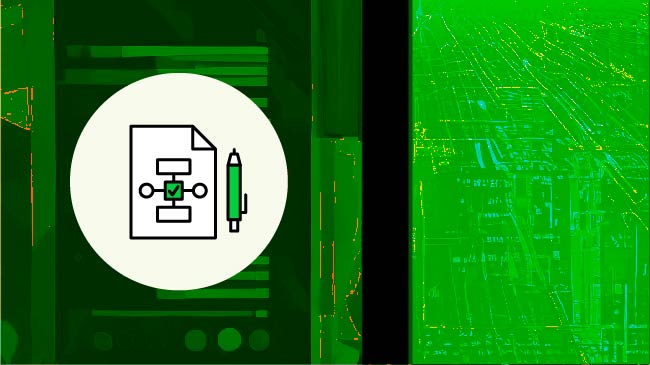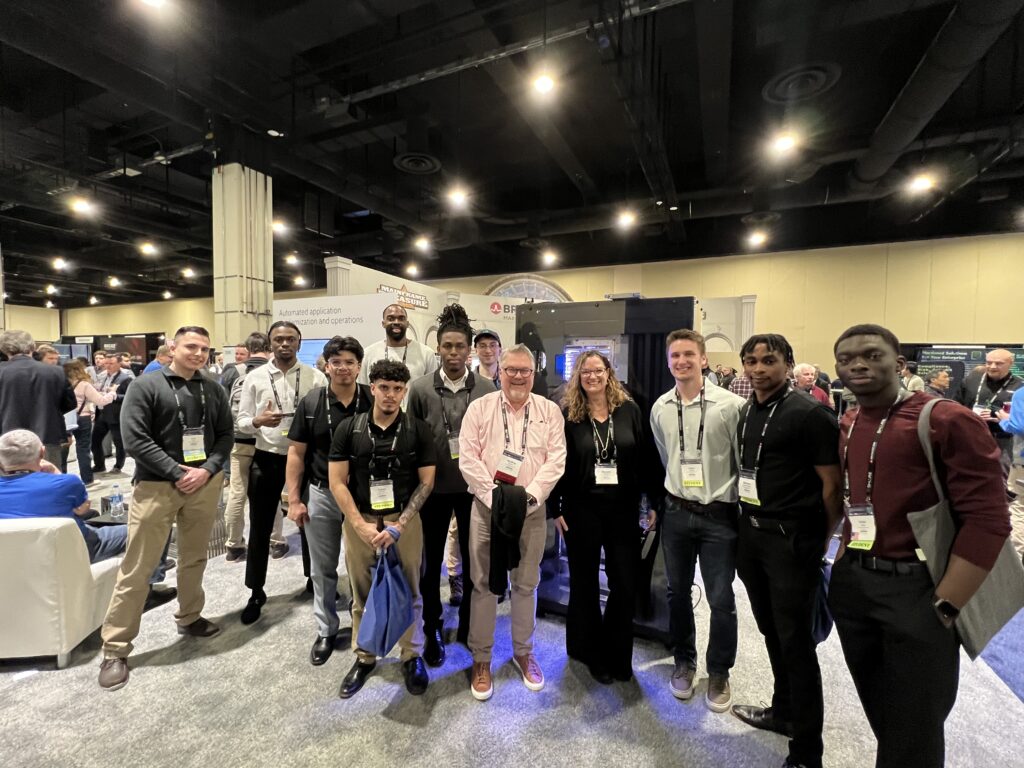A Rare Education: Budding Mainframers Prepare to Carry the Torch
Students at the school, one of the few in the U.S. offering mainframe instruction, prepare to carry the torch

When Geoffrey Decker needs to get his computer science students at Northern Illinois University (NIU) fired up about the mainframe, he knows just what to say.
“I tell them this is a legendary platform, and there are a lot of great, great developers and designers and architects that came before that developed the most important system for processing data in world history,” says Decker, who teaches two mainframe classes at NIU.
Another way to get his students excited is to take them out of the classroom and show them what the mainframe community is all about. Attendees at this winter’s SHARE conference might have noticed more youngsters milling about than other years. That’s because this year marked the first time Decker has brought more than one or two students to a mainframe conference.
Sixteen of Decker’s 144 mainframe students were at the Washington, D.C., gathering. “It’s obviously worked in getting them interested,” Decker says.
NIU junior Victor Taiwo’s interest was certainly piqued. “It was honestly one of the most eye-opening things that’s happened to me,” he says.
Taiwo relished the chance to speak with some of the industry’s top experts, a feeling encapsulated by a conversation he had with friend and classmate Oyewale Adeoye. “I’m like, ‘Dude, everyone here is someone,’” Taiwo recalls. “And every single time we talked to someone, they were just willing to help us, and it just made me want to just keep working hard and just know more stuff.”
Adeoye, for his part, is itching to start working on the mainframe in earnest after his SHARE experience. “It makes my passion for the mainframe even bigger. I just want to do it. I just want to get in and get started,” he says.
For NIU senior Tino Lara, the trip was just confirmation of what he had already observed. “I went to TechXchange in 2024, and it changed my life in a very positive way. I met so many great individuals there. They were extremely passionate about their craft. And the same goes with SHARE,” he says.

Still Teaching the Mainframe
While conferences like SHARE keep the mainframe community educated and connected, Decker notes that NIU is one of the few schools in the U.S. offering mainframe instruction. As he works to attract newcomers to the platform, that’s another one of his selling points—the fact that mainframe skills provide budding technologists the chance to zig when everyone else is zagging.
“Everybody else is doing stuff like C++ and they’re doing web development. They’re doing all the stuff that every school teaches. But NIU is special because we still teach this mainframe technology,” Decker says.
And that’s a good thing, “because I know the necessity of it. I know that the world’s economy would collapse if we don’t keep this going, and all of us are getting too old to do it anymore, sadly, or we’re coming to retirement or something.”
NIU offers two mainframe courses, with about 175 students learning the platform as of spring 2025. The first, covering Assembler language, is required for NIU computer science students and has become infamous for its difficulty. Those who survive that introduction can take what Decker calls a “mainframe smorgasbord.” “By the time they get through my second course, they know COBOL,” Decker says.
NIU junior Douglas Johnson wasn’t deterred by the detractors. “Sure, it’s a hard class,” he says. But he adds, “It’s very rewarding getting to the end point of being able to follow what’s going on and being able to be like, whoa, I’m doing some crazy stuff with almost this random collection of letters and numbers, but it’s actually causing something cool to happen.”
Leaning Into the Legacy
The term “legacy” has almost become a dirty word when used in reference to the mainframe, but for Decker, it’s yet another selling point.
“They call [COBOL] legacy code, which turns people off, but if you can show that the foundation is so strong, and the men and women that came before were so important in the success of humanity, actually, that I think that it inspires them, and you’ve really got to do that,” he says.
It also helps to remind the mainframe-curious that COBOL isn’t going away anytime soon. “I don’t care what anybody says, you’re going to need COBOL developers from now until whenever,” Decker says.
The AI code assistants are good for modernization, mapping out systems and learning how programs interact with one another, “but I don’t think the actual COBOL code is going to be replaced all that much,” he predicts. “It’s not broken. Why fix it? It runs like a bat out of hell. It runs solidly and efficiently, and it’s not going anywhere.”
And don’t forget that that the core of the mainframe’s OS is MVS, which is written in Assembler, he adds. “It’s what runs the machine, so you’re going to have to have systems programmers that know all the control blocks, know Assembler. There’s no way around it,” Decker says.
Ending the Developer Drought
It’s not lost on Decker that his students hold the future of the mainframe in their hands. “We’ve got this drought of mainframe developers around the world,” he says. Other institutions, like the Eli Madison Memorial Apprenticeship (EMMA) that Decker co-founded with fellow IBM Champion and mainframe enthusiast, Dr. Cameron Seay, are joining NIU in addressing the need.
“Around the country actually, they’re trying to pick up and start training or teaching mainframe courses again,” Decker says. “… Some even want to borrow my materials, and they all want me to teach online remotely, but I don’t have time to do that.”
But maybe some day, his current crop of recruits will. “I’m a big student of history,” Decker says, “The history of mainframing is so important, and people just can’t forget it. These guys are going to carry that on.”